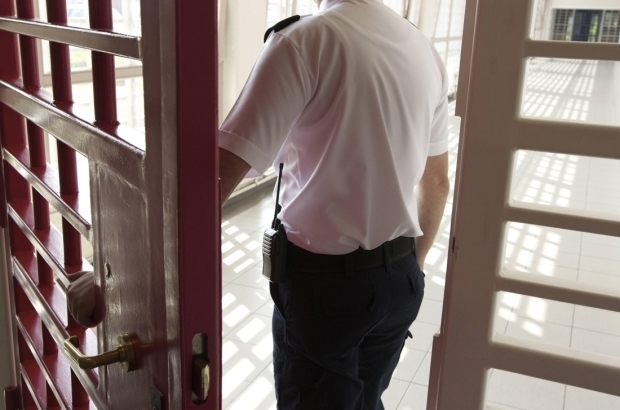- Daily & Weekly newsletters
- Buy & download The Bulletin
- Comment on our articles
Increasing number of prisoners released early due to overcrowding
Almost 700 inmates in Belgium are currently on extended prison leave due to overcrowding, according to a new internal study released by the prison administration.
The study found that overcrowding in prisons has reached "historically high" levels, with 12,809 people currently incarcerated despite a total capacity of 11,020 places, putting the overcrowding rate above 15% today, compared with 11% in 2018.
An estimated 198 inmates are said to be sleeping on the floor, and the overall situation has prompted sharp criticism from human rights groups.
“In my 30-year career, I've never experienced a situation like this,” said Grégory Wallez, federal secretary of the CCSP Prison trade union.
“We've really reached a saturation point. We don't know what to do in the prisons any more.”
Overcrowding in prisons has been an issue for some time, prompting the justice ministry to introduce new measures earlier this year that included early release for certain inmates but not others. Those convicted of terrorism or sex offences, for example, are not eligible.
To qualify for the conditional early release, prisoners must have six months or less remaining in their sentence and have a valid residence permit, in addition to not having been sentenced to more than 15 years’ imprisonment and having served at least a third of their total sentence.
A total of 696 prisoners have been granted early release since the measure came into force in March, or approximately one in every 20 inmates.
There are major disparities between prisons in terms of how often early release is granted. The prison in Kortrijk accounts for 24.71% of the total and the one in Forest accounts for 32.47%. The prison in Hoogstraten in Antwerp also scores remarkably high at 10.29%.
Unions warn that releasing prisoners early is not a sustainable solution, noting that these inmates need to be monitored by psychosocial services, and other facts - such as the fact that some are subject to an alternating leave measure - actually increase the workload for staff, particularly on the administrative side.
“It doesn't change much because the prisoners are coming back,” said Wallez.
“We need to find other solutions for the end of sentences or pre-trial detention. But in this case, we have to discuss the matter with the judiciary, and that's becoming more complicated.”
Prison staff have staged a number of actions regarding their working conditions amid the overcrowding problem, and another 24-hour strike is planned in prisons in Flanders and Brussels on 6 December.
Apart from overcrowding and a heavy workload, workers cite staff shortages and recent cases of violence by inmates.
“Given the recent incidents that have taken a heavy toll on staff and the government's late reaction, we are moving to activate the strike commitments,” said Alain Blancke of ACV Public Services union.
While Blancke and other union representatives noted some progress in consultations with management, Eddy De Smedt of VSOA said staff are still lacking short-term solutions.
The strike will start on 5 December at 22.00 and end a day later at the same time.



















